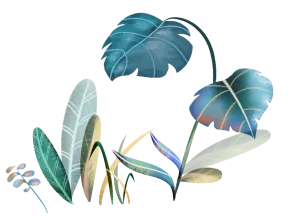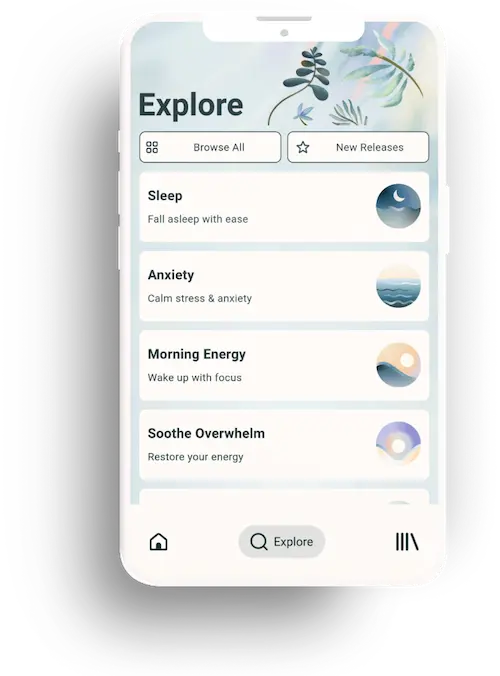5 Innovative Apps for Neurodivergent Adults You Should Know About

Looking for neurodivergent-friendly apps for adults? Here are five fantastic options.

Why apps made for neurodivergent folk matter
The space where technology meets inclusivity can be a powerful one.
But finding apps tailored to diverse cognitive needs can feel like looking for an oasis in a desert.
Among the countless options, it’s vital to highlight those that truly empower and support neurodivergent people.
In fact, apps that are by-us-for-us are critical for neurodivergent people.
Neurotypical people may fail to fully appreciate the neurodivergent experience. So their tools may be missing key features in their design or functionality.
By embracing apps made by & for neurodivergents, you can
- navigate daily life more effectively
- enhance productivity, and
- boost your well-being.
Understanding neurodivergence

The neurodiversity movement recognises that neurological differences are natural variations in humans.
It values the diverse ways people think, learn, and experience the world.
Instead of viewing neurodivergence as a disorder that automatically needs fixing? It emphasises acceptance, accommodation, agency and autonomy.
This approach promotes inclusion, equal opportunities, and understanding. And it challenges stigmas and stereotypes.
Overall, the neurodiversity movement fosters a more inclusive and compassionate society.
One that embraces all our unique strengths, differences and perspectives.
Types of neurodivergence
The term neurodivergence is an umbrella term.
Much like the term “queer” in the LGBTQI+ community, the word neurodivergent is a social term. Not a medical one.
You cannot be “diagnosed” as neurodivergent.
However, many conditions that are disorders under the pathology paradigm fall under the neurodivergent umbrella. These can include:
- autism
- ADHD
- dyslexia
- OCD
- dyspraxia
- epilepsy
- PTSD
- generalised anxiety
- HSP
and more.
The point is, that neurodivergence is an identity. As Sonny from The Lived Experience Educator says
“Neurodivergence refers to anyone whose mind or functioning diverges from dominant societal norms, standards and expectations. It is a term that exists in opposition to disorder because it’s about acknowledging that we aren’t disordered, we diverge.”
Is neurodivergence a disability?
In a word? Maybe.
When you diverge from societal standards of behaviour, it can be very challenging. Even disabling.
Some conditions may have co-occurring chronic pain, sensory sensitivities or executive function differences.
People may feel disabled by their neurodivergence.
Disabled is not a bad word. It’s simply an accurate descriptor of how some people cannot perform some tasks. That’s all. It’s a neutral term.
When you’re neurodivergent, acknowledging how your condition may disable you is the first step that helps you:
- identify needs
- communicate your needs with others, and
- use necessary accommodations
Apps for neurodivergent adults
These innovative apps are more than just tools. They’re gateways to empowerment.
And they help to create a more inclusive and supportive world.
Celebrating these apps isn’t just about showcasing technology.
It’s about advocating for understanding, acceptance, and equal opportunities for everyone. Regardless of your neurodivergence.
1. Restful

what it is: a library of meditones to help neurodivergent people feel calm & restful
who made it: a neurodivergent composer and her partner
how it helps: Meditones help regulate the nervous system, reduce anxiety and overwhelm. They may even help prevent burnout.
The Restful app is a fantastic alternative to guided meditation. Especially if you can’t meditate.
2. Hiki

what it is: a dating, friendship and community app for autistic people
who made it: an ally to the autistic community and a team of employees, over 70% who are autistic
how it helps: Hiki connects people with partners who understand and embrace their unique qualities.
It also fosters supportive friendships plus provides a welcoming space where autistic adults can be themselves.
3. Betwixt
what it is: Betwixt is a mental health game that blends choose-your-own-adventure stories and psychology
who made it: a team of neurodivergent founders and psychology experts
how it helps: the game aims to combat stress and anxiety by providing an engaging way to explore your inner self.
It offers an immersive alternative to mindfulness. Betwixt allows players to navigate a dreamlike world, solve mysteries, and unravel the secrets of their minds.
4. Time Timer

what it is: Time Timer is a visual timer app that represents the passage of time with a disappearing coloured disk
who made it: invented by Jan Rogers to initially help her child grasp the concept of elapsed time
how it helps: Time Timer makes it easier to understand and manage the passage of time.
It may be helpful for adults who are autistic, have ADHD, dyslexia or dyspraxia. Or anyone who struggles with time management.
5. Dubbii
what it is: Dubbii is a body doubling app designed to help ADHDers with home cleaning and organization tasks
who made it: Rich & Rox from ADHD Love
how it helps: It provides follow-along videos to help you focus, get started and finish cleaning. They also help you break down everyday tasks into micro-steps to reduce overwhelm.
Rich and Rox are friendly, charming and funny so you can work on your habits without any shame.
Takeaway
By embracing apps designed for your neurodivergent needs, you can learn to thrive in daily life, boost well-being and productivity.
Plus we love celebrating apps that help create a more inclusive and supportive world.
Feel calm effortlessly with the Restful app. Download for free on Google Play or the App Store today!